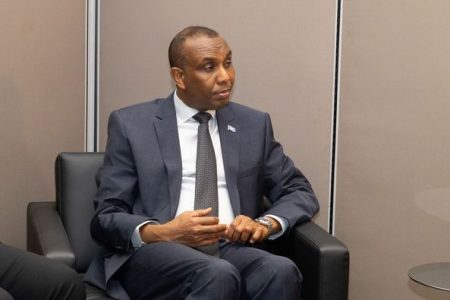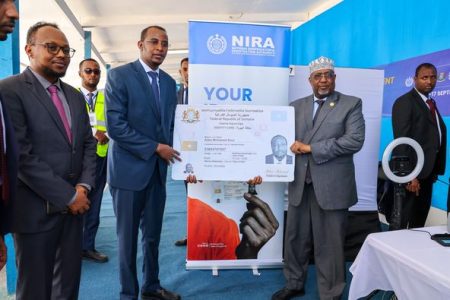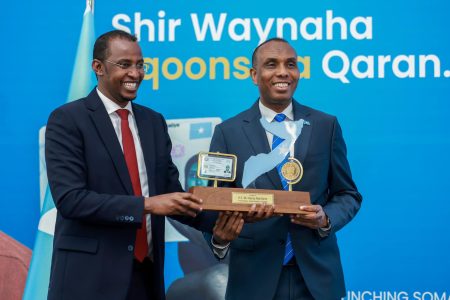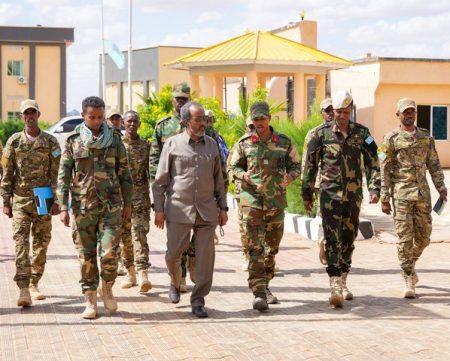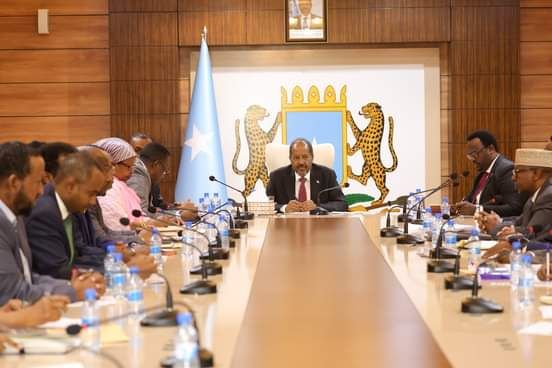
Today, in the middle of October, the final battle against the Al-Shabaab terrorist group in Somalia will show the world that a poor country with no arms embargo can fight a war that will never come back. Al-Shabaab, which is a major member of Al-Qaeda, was unsuccessful.
In that war, he is carrying his flag bravely in the Hiran region, standing by his promise to his people and the country. The promise of other communities who have promised to support and imitate them are today in the war worthy of criticism.
The disclaimer in Hiraan is that terrorism cannot be defeated if there is only one region that does not have support, the war is going on and the victory will be lost.
President Hassan Sheikh Mohamud announced after returning from his first trip to Turkey that there is only one way to face Al-Shabaab, which is at the point of a gun. Without preparing a plan, he repeated several times that he will not take over from his government for more than one year.
Apparently, the President’s statement was taken seriously by Al-Shabaab, which proceeded to collect weapons and land in Haradhere on September 3, 2022, in boats full of weapons while the illegal vessels of the European Union “Ataltatis” were watching.
A few days later, the brutal massacre of Afar Irdood (Mahas, Hiraan) took place, which prompted the people of Hiraan to make a decision to resist, which they are still standing by.
The government of Hassan Sheikh, who had bad affairs and a lack of planning, did not miss this opportunity, just as Farmajo missed the excitement after the explosion in Soobbe.
Somali intellectuals everywhere have warned the government of the consequences of random weapons being placed in the hands of a rebel population. But, they supported the government to give support of the rebellion, as it is necessary to end the war with the Somali National Army.
MP Abdirasaaq Husul warned against the negative consequences by citing a historical example. Unfortunately, he was upset by the statement when he compared Al-Shabaab to the Mawisley and pointed out that they can be more serious than those who are fighting and they are waiting for politicians to look for an opportunity.
The consequences of indecisiveness are still visible and are a threat to success. The fight against the Mawisla and the support is given to them has become something that has come back.
The communities of Galmudug and the Middle Shabelle, who promised to fight, did not follow through. The war in Galmudug has already affected the ambitions of the leadership of the clans and the communal conflict that has led to some clans not participating in the war and others showing reluctance until it stops.
The government, which focused on ending the war, was slow in reconciling the regional administrations and decided to go to war when the National Conference did not reach a unanimous decision.
In fact, it can be said that if a war is declared by a president whose first task is to travel abroad, success cannot be achieved. He even preferred Uganda over Adale, which is probably the reason why the tribal forces that would liberate the Middle Shabelle have not raised a finger yet. The government of Hassan Sheikh succeeded in ending the war and then ending the XDS forces.
The forces that were to be mobilized from the Adale base in the war and occupied the areas of El Guduud and Adan Yabal, which are areas that have been in the hands of Al-Shabaab for a long time, have not recovered anything today. This further diminishes public confidence in the government to guide the war on the path to victory.
The military forces of the Hiran region, which are under the burden of the war, lack the support they deserve. The Harammad forces in the Hiran region need support and supplies while the Danab forces are away in the region.

